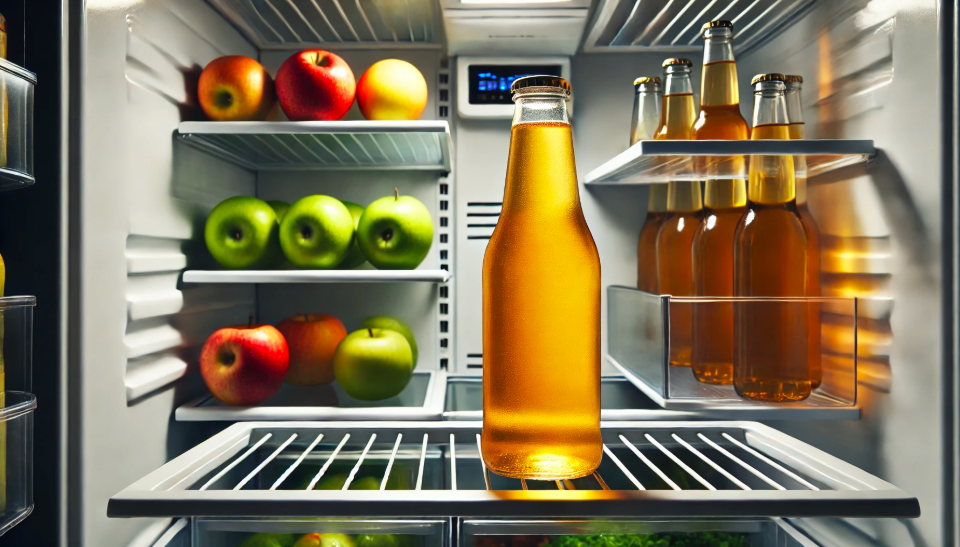
Apple juice typically lasts 7 to 10 days in the fridge if it is fresh and homemade. For store-bought varieties that are opened, the shelf life in the fridge can extend up to 7 to 14 days, depending on the preservatives used. Unopened, shelf-stable apple juice can last months or even up to a year if stored correctly, but once opened, refrigeration is necessary to prevent spoilage.
Shelf Life of Fresh Apple Juice in the Fridge Freshly made apple juice, without preservatives, has a shorter shelf life compared to store-bought options. It can last 3 to 5 days in the refrigerator at temperatures between 35°F and 40°F (1.6°C to 4.4°C). After this period, it may begin to ferment or develop mold, even if stored properly. To enjoy the best flavor and quality, consume fresh juice as soon as possible after making it.
Duration for Store-Bought Apple Juice After Opening Once opened, store-bought apple juice should be refrigerated and consumed within 7 to 10 days for optimal freshness. Some varieties, especially those with added preservatives, may last up to 14 days. Always check the label for specific guidance from the manufacturer. Unopened bottles or cartons that are shelf-stable can last until the expiration date printed on the packaging.
Factors Affecting The Longevity Of Apple Juice
- Preservatives: Juices with added preservatives last longer than fresh or organic options.
- Storage Conditions: Apple juice stored in a tightly sealed container lasts longer than juice in an open or loosely sealed container.
- Temperature: Consistent refrigeration at the right temperature (below 40°F or 4.4°C) is crucial for extending the shelf life.
- Exposure to Air: Oxygen exposure accelerates spoilage, so keeping containers sealed is essential.
- Type of Juice: Pasteurized juice lasts longer than raw or freshly pressed juice due to the elimination of bacteria during processing.
How To Tell If Apple Juice Has Spoiled
- Smell: A sour or fermented odor is a clear sign of spoilage.
- Appearance: Spoiled juice may appear cloudy or develop mold on the surface.
- Taste: A change in taste, such as sourness or bitterness, indicates the juice is no longer safe to drink.
- Bubbles or Fizzing: This suggests fermentation has begun, which can make the juice unsafe to consume.
- Expiration Date: If the expiration date has passed, the juice may no longer be safe, even if it seems fine.
Proper Storage Tips For Maximizing Freshness
- Refrigerate Immediately: Place the juice in the fridge as soon as possible, especially after opening.
- Use Airtight Containers: Transfer leftover juice into airtight glass or plastic containers to minimize air exposure.
- Keep at Consistent Temperature: Avoid frequent temperature fluctuations by storing juice in the main body of the fridge, not the door.
- Do Not Mix Fresh and Old Juice: Mixing fresh juice with an older batch increases the chance of spoilage.
- Freeze for Longer Storage: If you don’t plan to use the juice within a week, freezing it can extend its life by several months.
Impact Of Fridge Temperature On Apple Juice Shelf Life
The temperature of your fridge plays a significant role in preserving apple juice. The ideal temperature for storing apple juice is 35°F to 40°F (1.6°C to 4.4°C). If the temperature rises above this range, bacteria and yeast can grow more quickly, leading to faster spoilage. Conversely, a fridge set too cold may cause the juice to freeze, altering its texture and flavor once thawed.
FAQs About Storing Apple Juice Safely
Q: Can I drink apple juice past its expiration date? A: If unopened, apple juice can often be safe for a few weeks beyond its expiration date. However, check for signs of spoilage before consuming.
Q: Is it safe to freeze apple juice? A: Yes, freezing is a great way to extend its shelf life. Use a freezer-safe container and leave space for expansion.
Q: Can I store apple juice at room temperature after opening? A: No, opened apple juice should always be refrigerated to prevent bacterial growth.
Q: Does homemade apple juice last longer with added sugar? A: Adding sugar may slightly extend the shelf life, but it doesn’t replace proper refrigeration or preservation methods.
Q: Can cloudy apple juice still be good? A: Cloudiness can be normal for unfiltered or fresh juice. However, if it’s accompanied by an off smell or taste, it may be spoiled.